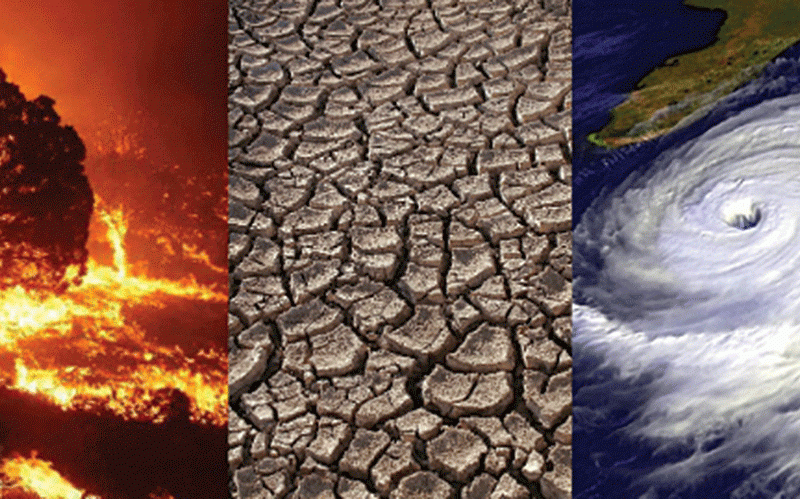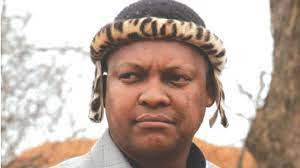
WIHDHOEK, Namibia- Sweden has called for urgent action to address the intersection of sexual and reproductive health and rights (SRHR) and climate change, warning that the synergies between the two remain critically underestimated despite their profound impact on vulnerable populations, especially women and girls.
Swedish ambassador Zambia, Veronica Perzanowska, made the call on Tuesday while addressing a virtual capacity-building seminar for parliamentary staff in southern Africa.
Perzanowska stressed that climate change is not merely an environmental crisis, but a human rights issue.
“The increasing frequency and severity of climate-related disasters such as floods, droughts, and cyclones, disproportionately affect vulnerable populations, particularly women and girls,” she noted.
She highlighted how climate-induced displacement, deteriorating living conditions, and food insecurity directly affect access to SRHR services.
“In overcrowded and unsanitary settings, women and girls face heightened risks of sexual violence, unintended pregnancies, and sexually transmitted infections,” she said, calling for SRHR to be embedded in humanitarian responses and disaster preparedness.
She cited the disproportionate burden borne by pregnant women and children during food crises and advocated for a multisectoral approach.
“Integrating SRHR services with nutrition programmes can help mitigate these risks,” she argued.
- Disaster preparedness is everyone’s responsibility
- Sweden urges stronger integration of SRHR in climate response
Keep Reading
The ambassador outlined Sweden’s global development cooperation principles and noted that climate change and environmental sustainability are cross-cutting considerations in all Sweden-funded programmes, whether they relate to human rights, migration, or economic development.
“Even when working on SRHR, we must assess whether our programmes contribute to climate change adaptation or mitigation,” she said.
Perzanowska urged parliamentary researchers and lawmakers to use their legislative and oversight roles to push for the integration of SRHR into national climate adaptation and mitigation policies.
“You must advocate for policies that ensure SRHR services are part of climate action budgets and disaster preparedness plans,” she said.
The envoy acknowledged the growing but still limited understanding of the SRHR-climate change nexus saying, “Synergies and linkages between SRHR and climate change are still very much underestimated, and there is a need for more research, advocacy, and programmatic action.”
She called for equity and justice.
“Addressing the link between SRHR and climate change is not just a matter of health; it is a matter of justice and equity. By acting on this intersection, we can build a more resilient and equitable future for our most marginalised.”
On their part, representatives of the Inter Parliamentary Union (IPU) reaffirmed their commitment to strengthening parliamentary action across southern Africa to promote equity, resilience, and inclusive health systems.
Speaking at the same event, Kareen Jabre, the director of programmes at the IPU, stressed the urgency of building the capacity of parliamentary staff to address the climate-SRHR nexus.
She said the IPU was “extremely happy” to be co-organising the session with SadcPF, a long-standing partner.
“Strengthening parliamentary action on the intersection of climate change and SRHR is a priority across both of our institutions,” Jabre said.
She added, “Climate change and health are two key areas of work for the IPU, alongside gender equality.
“We’ve been promoting a more integrated approach by facilitating debates and creating platforms for learning.”
Jabre identified persistent silos between sectors, inadequate data, and the vulnerability of health systems as major challenges undermining integrated responses.
“Our focus is on equity and ensuring parliaments deliver for all segments of society.
“Today is another opportunity to deepen understanding, build synergies, and learn from peers across the region,” she said.
She expressed hope that the session would equip participants with knowledge and strategies to apply in their parliamentary work.
A pre-recorded message from the IPU secretary-general Martin Chungong reinforced this commitment, stressing that “climate change is not gender neutral” and that women and girls endure the most of its impacts.
“They face disproportionate risks, from food insecurity and water scarcity to forced displacement, all of which are exacerbated by the changing climate,” he said.
Chungong warned that in times of disaster, access to SRHR services is often neglected.
“This must not happen,” he urged. “Let us shift the narrative from crisis to resilience. We can and must place collective rights and the needs of the most vulnerable at the centre of climate action and development policies.”
He commended the Sadc region’s growing prioritisation of SRHR and health, while acknowledging the strain climate emergencies place on health systems.
“Your presence here is a powerful signal that transformation is possible and already underway,” he said.
The IPU secretary-general stressed the union’s strong belief in dialogue as a catalyst for change.
“It is through open exchange and mutual learning that we shape collective action. The IPU stands ready to continue working with Sadc PF and national parliaments to support this cause.”
The seminar, attended by parliamentary staff from across the Sadc region including researchers under the Sweden-funded SRHR, HIV and AIDS Governance Project of the Sadc PF, sought to provide a platform for knowledge-sharing and cross-country learning on integrating SRHR into climate change responses.










